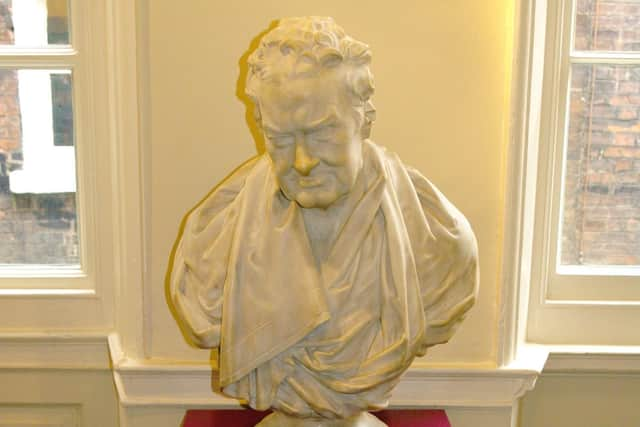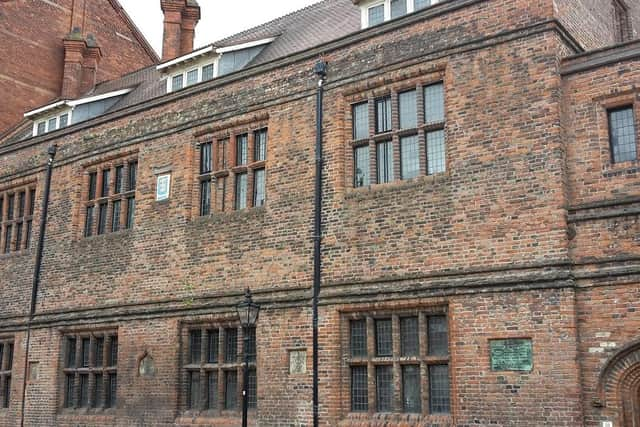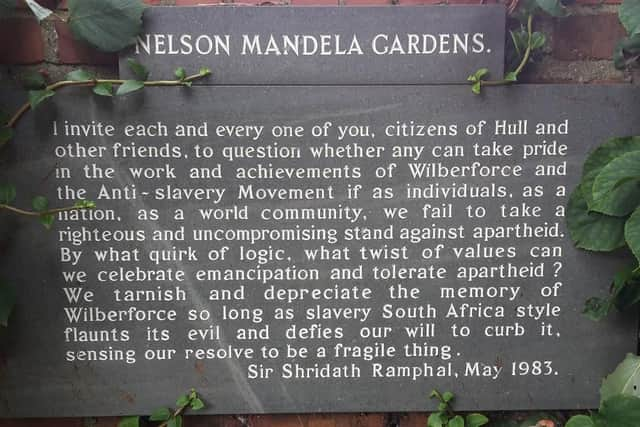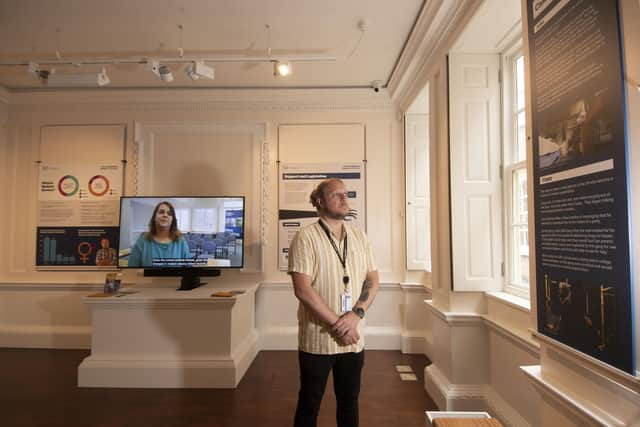Yorkshire historians on why Hull-born abolition campaigner and politician William Wilberforce is one to remember and honour ahead of Yorkshire Day
William Wilberforce was born in Kingston upon Hull in 1759. He was a small and sickly child and it was not until his time at St John's College, Cambridge, that he began to consider a political career.
He was elected MP for Hull in 1780, aged just 21, and four years later became the MP for Yorkshire.
Advertisement
Hide AdAdvertisement
Hide AdHis love of theatres, clubs and parties of London society made him popular but later, during a tour of Europe with Isaac Milner in 1785, he began his spiritual conversion to Evangelical Christianity.


It was at this time that he was approached by Abolitionists who encouraged him to take part in helping to end slavery. He announced his intention to raise the subject in the House of Commons in 1787.
"Wilberforce used his political networks, excellent rhetoric, and deep knowledge of the bible, as tools to mobilise political support for his cause,” explains Dr Nicholas Evans, Senior lecturer in Diaspora History at the Wilberforce Institute, University of Hull.
“Ultimately, he was a skilled and morally driven politician in a time when many questioned politics. Overcoming powerful opponents, including senior members of the British Royal Family, his political career was dominated by this important work.
Advertisement
Hide AdAdvertisement
Hide Ad“William Wilberforce's political leadership of the campaign to abolish the British slave trade remains of critical importance to Britain today.”


Wilberforce led the campaign for the end of the slave trade in Parliament along with the Abolition society who collected evidence and set up petitions; songs, leaflets and badges were passed around to rally public support.
In 1807, The Slave Trade Act was passed.
“In the late eighteenth century, Britain was the foremost trafficker of enslaved Africans in the world,” Dr Evans said, “Securing sufficient political support, through the political machinations of Wilberforce, to halt this brutal trade in 1807, was a significant change in our national identity.
“It radically marked the beginning of a new tradition in which Britain promoted human rights both at home and abroad. It did not end slavery - that did not take place until the Slavery Abolition Act of 1833, effective from 1838 - and so the plight of millions of enslaved Africans remained precarious.
Advertisement
Hide AdAdvertisement
Hide Ad

“Yet the events in 1807 influenced attitudes here in Britain and across other slaving societies to also end their slave trades.”
It wasn’t until the day he died on July 29, 1833, that he heard, to his relief, the Bill to free all slaves in British colonies had passed its second reading in the Commons.
The Bill officially became law a month after his death.
City archivist at Hull History Centre, Martin Taylor, said: “The abolition in 1833 was largely the culmination of the successful campaign by the Anti-Slavery Society founded in 1823, with which Wilberforce was too old to be much involved.


“It’s important to acknowledge the vital role of Black anti-slavery campaigners such as Ottobah Cugoano, Olaudah Equiano and Mary Prince. But Wilberforce was so influential because he was campaigning from a position of power.
Advertisement
Hide AdAdvertisement
Hide Ad“He was a Member of Parliament and of the British upper class. He could speak to British lawmakers on their own terms.
“His Evangelical religion and prominent position gave him a unique position as a sort of arbiter of morality in British public life which lent considerable moral authority to the campaign to abolish slavery.”
Dr Evans said that Wilberforce was a “champion” of human rights, but there is still work to be done towards race equality in Britain.
“As a son of Yorkshire who managed to champion human rights around the world, he is a key person to celebrate on Yorkshire Day at a time when trust in politicians is once again low.
Advertisement
Hide AdAdvertisement
Hide Ad“His memory is also a powerful tool to raise contemporary interest in forms of slavery today, for once again the lives of millions of people are blighted by human rights abuses - including here in Yorkshire.


“I don't think we have come nearly far enough.
“Recent cases, such as institutional racism at Yorkshire County Cricket, the refusal of Filey Town Council to allow a memorial to Caribbean service personnel who served at Filey during World War Two to be erected, and growing racism in our city centres all reveal race inequalities continue to pervade our region.
“We have thankfully made some important progress, but a fitting legacy to Wilberforce this Yorkshire Day would be to actively work in eradicating all forms of racism.
“Actively listening to concerns raised by communities blighted by racism would be a start.”
Comment Guidelines
National World encourages reader discussion on our stories. User feedback, insights and back-and-forth exchanges add a rich layer of context to reporting. Please review our Community Guidelines before commenting.
